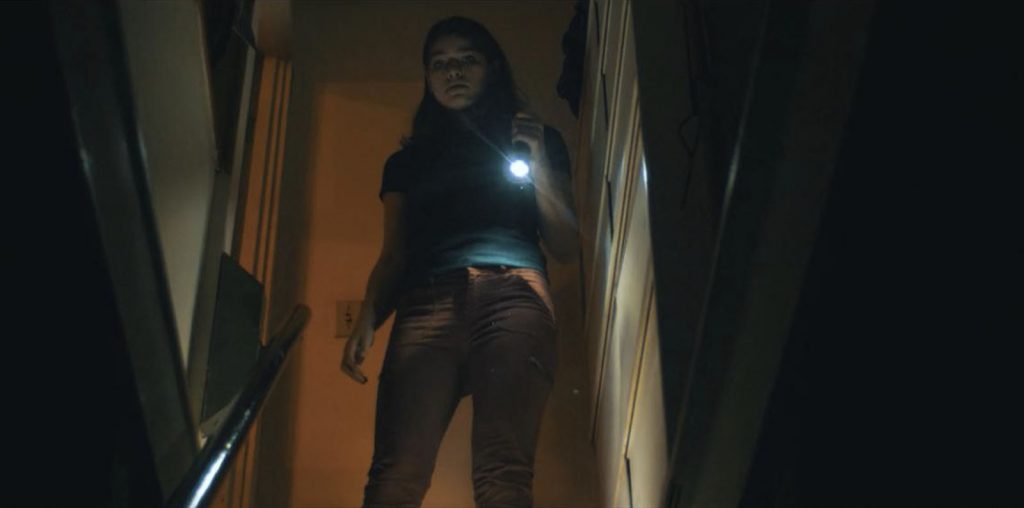
Cliffsnotes provides all relevant facts and themes of a literary work for the student who doesn’t have the time, patience, or willingness to read the 200 page novel. The reader doesn’t have to experience developments of the characters’ friendships, suffering, or enlightenment. Cliffsnotes gets down to the bottom line very quickly. If films had Cliffsnotes, Nancy Stein’s short “Stealing Innocence” would be an ideal example. The film is about how tensions between Israelis and Palestinians destroy the friendship between two girls. Despite their different backgrounds, Israeli Rachel (Natalie Avital) and Palestinian Ayat (Einat Tubi) have been friends since childhood.
The film begins with newsreel footage dated March 1992, which sets up the political climate. Young Rachel (Sophia di Marco) and young Ayat (Tessa Vonn) are reading in a park. After another newsreel clip, Rachel and Ayat are eight years older. The rest of the film reveals how their friendship meets a premature end.
“Stealing Innocence” has received much praise from the film festivals it’s entered. It also won the Audience Award at the 2003 Emerald Eye Short Film Festival. “Stealing Innocence” is beautifully shot, Rachel and Ayat aren’t total clichés, but the story and character motivations are put on display. The newsreel footage that’s incorporated throughout the film informs the viewer that the hostility between the Israelis and the Palestinians has increased. Stein doesn’t have to spend time developing facets of the drama. Moreover, voice-overs from Rachel and Ayat recount exactly what the viewer can and cannot see. For instance, you learn that Ayat’s father works for Jews, and can provide a better standard of living for his family. Rachel’s dad is a soldier in the Israeli army and is kinder to Palestinians than others.
“Stealing Innocence” was originally Stein’s thesis project when she was a student at the Los Angeles Film School. Perhaps there was a time constraint which limited Stein’s ability to tell Rachel and Ayat’s story as more than a presentation of cause-and-effects and facts. There is one scene where the characters are more interactive with each other (rather than with the viewer). Rachel and Ayat are in the park. They’re discussing Ayat’s grades. Rachel congratulates her friend’s straight A’s. Ayat isn’t as elated. She explains to Rachel, “They teach me to hate you.” When Rachel entertains the idea of her and Ayat’s families leaving Israel, Ayat declines the thought because “this is my home.” Rachel emphasizes that it’s her home too.
Films don’t have Cliffsnotes because films shouldn’t have outlines of “these characters do the following things in the following order and the themes are summarized below.” Reviews and, to some extent, previews function on similar levels in that they peak your interest, but they aren’t condensed versions of the film. “Stealing Innocence” is like the Cliffsnotes of what its feature-length could be. All pertinent narrative elements and themes are included and the viewer doesn’t have to infer anything.
Disagree with this review? Think you can write a better one? Go right ahead in Film Threat’s BACK TALK section! Click here>>>
